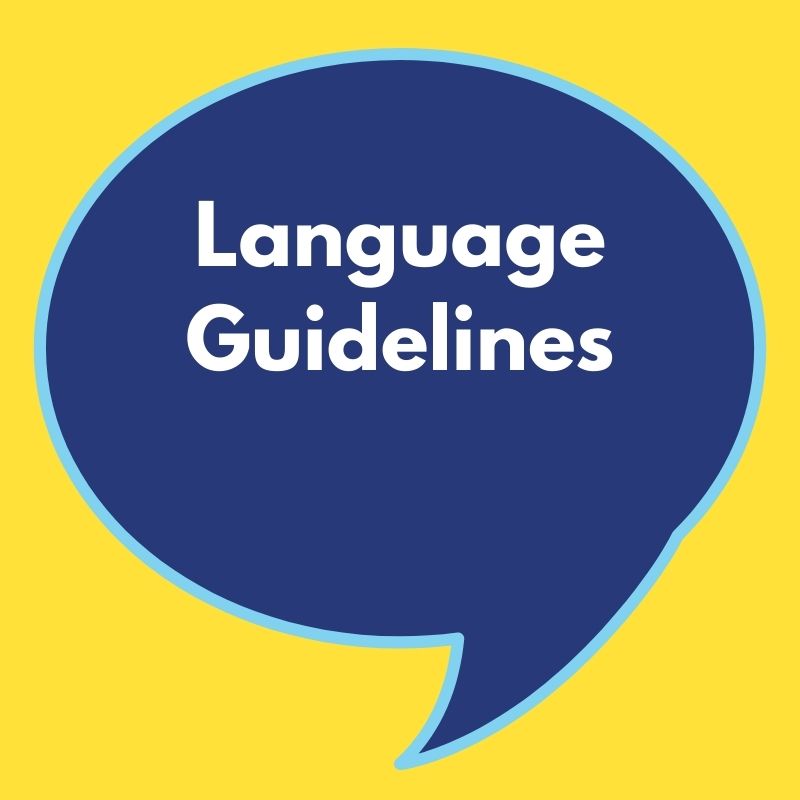Login
Signup
Language Guidelines
- Home -
- Language Guidelines

Language is a reflection of how people see each other. We believe that when referring to an individual with Down syndrome it is important to use language which is both accurate and respectful of the individual. People with Down syndrome should always be referred to as people first. Instead of “a Down syndrome child,” the correct wording is “a child with Down syndrome.” This is known as Person First language. It places the individual before the disability. Placing the person before the disability emphasizes the person first and the disability second. Person First language emphasizes respect for the individual.
Avoid using the term “Down’s child” or describing the condition as “Down’s,” as in, “He has Down’s.” A baby born with Down syndrome is not a “Down’s baby” or a “baby with Downs.” He/she is a baby with Down syndrome. Down syndrome is named for the English physician Dr. John Langdon Down, who characterized the condition, but did not have it. We use the preferred spelling, Down syndrome, rather than Down’s syndrome as is common in England and other parts of Europe. While Down syndrome is listed in many dictionaries with both popular spellings (with or without an apostrophe s), the preferred usage in the United States is Down syndrome. This is because an “apostrophe s” connotes ownership or possession. The AP Stylebook recommends using “Down syndrome” as well.
It is also important to use correct terminology. People “have” Down syndrome, they do not “suffer from” it nor are they “afflicted by” it. It is not a disease. Down syndrome is a chromosomal condition resulting from an extra copy of the 21st chromosome. Similarly, when referring to peers, the correct term is “typical” peers as opposed to “normal.” Although it is common for people to use the term, “mental retardation,” the preferred term is “intellectual or cognitive disability.”
People with Down syndrome are sometimes portrayed as being happy and loving all the time or frequently as angels. However, avoid casting every person with Down syndrome as a superhuman model of humanity. They are unique individuals with unique personalities, and they experience a full range of emotions just like everyone else.
You can help others use responsible language which reflects the dignity of people with Down syndrome. Words can create barriers and reinforce stereotypes. Therefore, the PDSSN strongly believes in the importance of ensuring that correct language is used. A person is much more than a label or diagnosis. Help to educate others about the preferred way to refer to individuals with Down syndrome.
Individuals with Down syndrome have unlimited potential when given proper support!